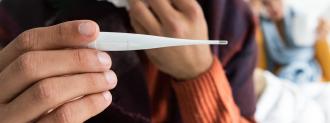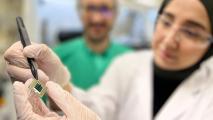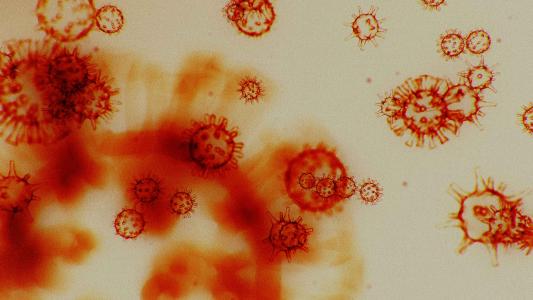Many of the devices in the “Internet of things” are pure gimmicks — really, who needs a trash can that connects to the internet?
But now we’re seeing how smart devices can actually save lives — by helping the world fight the coronavirus outbreak.
Find the Fevers, Fight the Coronavirus
Over the past few years, San Francisco-based health tech company Kinsa Health has sold or given away more than a million of its smart thermometers across the U.S. to track the spread of the flu.
When a person takes their temperature, the thermometer sends the reading to their smartphone. The phone then sends the data to Kinsa, which uses the readings to build interactive maps that predict the spread of the flu by identifying fever hotbeds.
“This is 21st-century disease surveillance.”
William Schaffner
The maps have proven impressively accurate, according to the New York Times — Kinsa’s predictions are often two weeks ahead of those made by the CDC, which rely on weekly reports from doctor’s offices.
Just like the flu, fever is a common symptom of COVID-19 infection — the illness caused by the novel coronavirus SARS-CoV-2 — so Kinsa is now using its smart thermometers to fight the coronavirus.
Kinsa’s Smart Thermometer
Kinsa typically submits its fever data to peer-reviewed journals for publication. However, on March 20, it eschewed convention and published its latest maps and data on the preprint server medRxiv.
It also created and launched the U.S. Health Weather Map website. There anyone can view a map that depicts both the currently observed illness levels in the U.S., as well as the degree to which those levels are higher than expected at this point in the flu season.
“This system is meant to guide public health first-responders to the areas needing further investigation and resources, because something outside of the ordinary is happening,” Kinsa Founder and CEO Inder Singh wrote in a note.
Kinsa’s system could get even more accurate as the coronavirus outbreak continues, too — Singh told the NYT that demand for the company’s smart thermometers is skyrocketing, and it’s now selling 10,000 of the devices a day.
“This is very, very exciting,” William Schaffner, a Vanderbilt University professor of preventive medicine, told the NYT of Kinsa’s work. “This is 21st-century disease surveillance, and we’ve been rooted in the mid-20th century with something very labor intensive.”
Wearable Warning System
Kinsa’s thermometer isn’t the only smart device helping fight the coronavirus.
Finland-based startup Oura Health has partnered with researchers from the University of California, San Francisco, to conduct a study to determine whether its Oura Ring — a smart ring that tracks body temperature and other vital signs — can accurately predict the onset of the coronavirus.
The three-month-long study will include up to 2,000 healthcare workers, and any of the more than 150,000 people who already own Oura Rings can choose to opt-in, as well.
The group has good reason to believe the smart ring might serve as an effective early warning system for the coronavirus — at least one coronavirus patient says an alert from his Oura Ring was his first indication that he’d caught the virus.
If the study proves his experience wasn’t an anomaly, the researchers hope to use the data they gather to develop algorithms specifically designed to detect signs of COVID-19 — which could put smart tech on the frontlines as we continue to fight the coronavirus.






